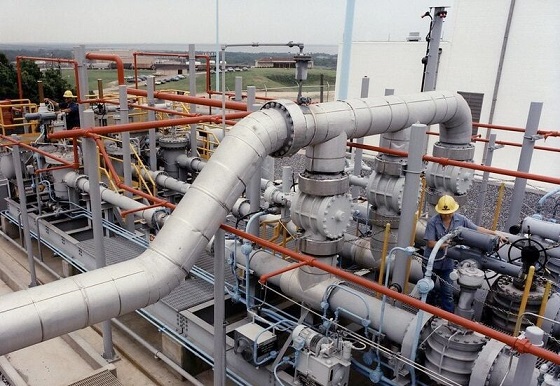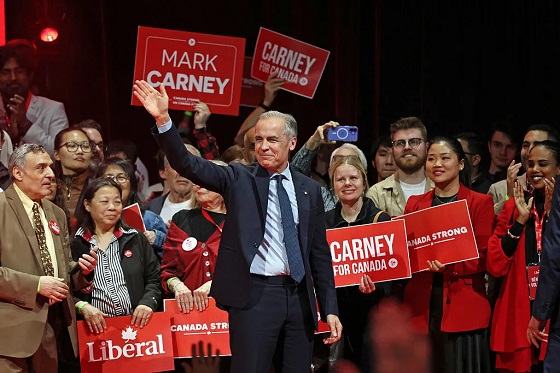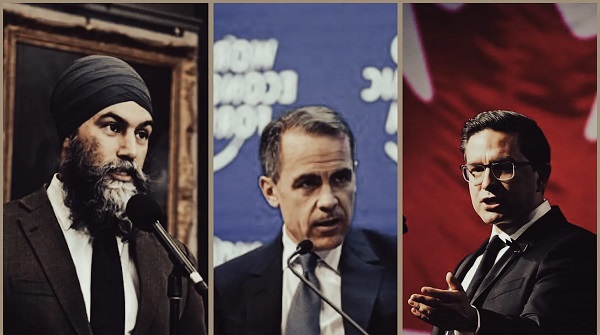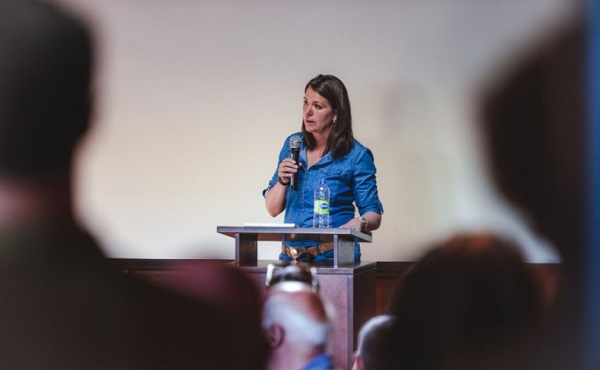Energy
Bipartisan groups in Congress introduce bill to protect strategic petroleum reserve

From The Center Square
By
A bipartisan group of U.S. senators introduced a bill to limit, not prohibit, the sale of crude oil from the U.S. Strategic Petroleum Reserve (SPR).
The Banning SPR Oil Exports to Foreign Adversaries Act was filed in the U.S. Senate by Sens. Ted Cruz, R-Texas, John Fetterman, D-Penn., and Elissa Slotkin, D-Mich. U.S. Reps. Chrissy Houlahan, D-Penn, Don Bacon, R-Nebraska, and Jay Obernolte, R-Calif. filed the bill in the U.S. House.
Instead of repealing provisions of a 10-year-old law to ban the sale or export of SPR oil, the bill seeks to amend the Energy Policy and Conservation Act to prohibit the sale or export of SPR oil to certain countries and entities. It would ban SPR oil from being sold or exported to the People’s Republic of China, North Korea, Russian Federation, Islamic Republic of Iran, any entity owned or controlled by these countries or the Chinese Communist Party.
The SPR is the largest publicly stored emergency supply of petroleum in the world – solely supplied by the U.S. oil industry, led by Texas. The SPR was created after a U.S. energy crisis erupted from a 1973 Organization of the Petroleum Exporting Countries (OPEC) oil embargo and Carter administration inflationary policies.
Underground tanks in Texas and Louisiana have the capacity to hold more than 700 million barrels of petroleum. Instead of passing balanced budgets, in 2015, Congress mandated that the U.S. Department of Energy sell SPR oil to fund its deficit spending.
Since then, the DOE has sold SPR reserves to the highest bidder through competitive public auctions to anyone in the world. During the Biden and Trump administrations, foreign companies with direct ties to American adversaries purchased SPR oil for anti-democratic regimes.
In 2022, in response to energy policies he implemented that directly contributed to high energy costs and inflation, President Joe Biden instructed the DOE to release 1 million barrels of SPR oil a day for 180 days. Chinese companies benefited from the sale, purchasing large quantities. The 2022 release was the largest SPR sale in U.S. history, according to US Energy Information Administration data.
Biden left the SPR with less than 395 million barrels of crude oil. Under the first Trump administration, the SPR exceeded 695 million barrels. Under the Obama administration, it exceeded 726 million barrels.
“The Strategic Petroleum Reserve is meant to protect the U.S. during crises, not supply our adversaries,” Cruz said. “Under President Biden, part of this reserve was sold, benefiting China’s strategic interests. There is strong bipartisan consensus around preventing such a sale from being repeated.”
“The Strategic Petroleum Reserve protects America’s energy, economic, and national security,” Fetterman said. “We must prioritize the safety of America and our allies – we cannot allow our adversaries to purchase oil from our critical energy reserves. This is a commonsense bill with strong bipartisan support.”
Their efforts follow a bipartisan initiative to protect the SPR that was incorporated in the Fiscal 2024 National Defense Authorization Act (NDAA).
Cruz and Houlahan introduced amendments to their respective chamber’s version of the NDAA, which included similar provisions to this bill. Cruz’s amendment received bipartisan support in the Senate. Houlahan’s amendment unanimously passed in the House.
Alberta
It’s On! Alberta Challenging Liberals Unconstitutional and Destructive Net-Zero Legislation

“If Ottawa had it’s way Albertans would be left to freeze in the dark”
The ineffective federal net-zero electricity regulations will not reduce emissions or benefit Albertans but will increase costs and lead to supply shortages.
The risk of power outages during a hot summer or the depths of harsh winter cold snaps, are not unrealistic outcomes if these regulations are implemented. According to the Alberta Electric System Operator’s analysis, the regulations in question would make Alberta’s electricity system more than 100 times less reliable than the province’s supply adequacy standard. Albertans expect their electricity to remain affordable and reliable, but implementation of these regulations could increase costs by a staggering 35 per cent.
Canada’s constitution is clear. Provinces have exclusive jurisdiction over the development, conservation and management of sites and facilities in the province for the generation and production of electrical energy. That is why Alberta’s government is referring the constitutionality of the federal government’s recent net-zero electricity regulations to the Court of Appeal of Alberta.
“The federal government refused to work collaboratively or listen to Canadians while developing these regulations. The results are ineffective, unachievable and irresponsible, and place Albertans’ livelihoods – and more importantly, lives – at significant risk. Our government will not accept unconstitutional net-zero regulations that leave Albertans vulnerable to blackouts in the middle of summer and winter when they need electricity the most.”
“The introduction of the Clean Electricity Regulations in Alberta by the federal government is another example of dangerous federal overreach. These regulations will create unpredictable power outages in the months when Albertans need reliable energy the most. They will also cause power prices to soar in Alberta, which will hit our vulnerable the hardest.”
Finalized in December 2024, the federal electricity regulations impose strict carbon limits on fossil fuel power, in an attempt to force a net-zero grid, an unachievable target given current technology and infrastructure. The reliance on unproven technologies makes it almost impossible to operate natural gas plants without costly upgrades, threatening investment, grid reliability, and Alberta’s energy security.
“Ottawa’s electricity regulations will leave Albertans in the dark. They aren’t about reducing emissions – they are unconstitutional, ideological activist policies based on standards that can’t be met and technology that doesn’t exist. It will drive away investment and punish businesses, provinces and families for using natural gas for reliable, dispatchable power. We will not put families at risk from safety and affordability impacts – rationing power during the coldest days of the year – and we will continue to stand up for Albertans.”
“Albertans depend on electricity to provide for their families, power their businesses and pursue their dreams. The federal government’s Clean Electricity Regulations threaten both the affordability and reliability of our power grid, and we will not stand by as these regulations put the well-being of Albertans at risk.”
Related information
- Conference Board of Canada socio-economic Impacts of Canada’s 2030 Emissions Reduction Plan – (April 2025)
- Alberta Electric System Operator’s position on Canadian Energy Regulations
Alberta
Alberta’s future in Canada depends on Carney’s greatest fear: Trump or Climate Change

Oh, Canada
We find it endlessly fascinating that most Canadians believe they live in a representative democracy, where aspiring candidates engage in authentic politicking to earn their place in office. So accustomed are Canada’s power brokers to getting their way, they rarely bother to cover their tracks. A careful reading of the notoriously pliant Canadian press makes anticipating future events in the country surprisingly straightforward.
Back in December, when Pierre Poilievre was given better than 90% odds of replacing Prime Minister Justin Trudeau—and Mark Carney was still just an uncharismatic banker few had heard of—we engaged in some not-so-speculative dot-connecting and correctly predicted Carney’s rise to the top spot. Our interest was driven by the notoriously rocky relationship between Ottawa and the Province of Alberta, home to one of the world’s largest hydrocarbon reserves, and how Carney’s rise might be a catalyst for resetting Canada’s energy trajectory. In a follow-up article titled “The Fix Is In,” we laid out a few more predictions:
“Here’s how the play is likely to unfold in the weeks and months ahead: Carney will be elected Prime Minister on April 28 by a comfortable margin; [Alberta Premier Danielle] Smith will trigger a constitutional crisis, providing cover for Carney to strike a grand bargain that finally resolves longstanding tensions between the provinces and Ottawa; and large infrastructure permitting reform will fall into place. Protests against these developments will be surprisingly muted, and those who do take to the streets will be largely ignored by the media. The entire effort will be wrapped in a thicket of patriotism, with Trump portrayed as a threat even greater than climate change itself. References to carbon emissions will slowly fade…
In parallel, we expect Trump and Carney to swiftly strike a favorable deal on tariffs, padding the latter’s bona fides just as his political capital will be most needed.”
The votes have barely been counted, yet the next moves are already unfolding…
“Alberta Premier Danielle Smith says she’ll make it easier for citizens to initiate a referendum on the province’s future in Canada, after warning that a Liberal win in Monday’s election could spur a groundswell of support for Alberta separatism. Smith said on Tuesday that a newly tabled elections bill will give everyday Albertans a bigger say in the province’s affairs.
‘(We’re giving) Albertans more ways to be directly involved in democracy, and to have their say on issues that matter to them,’ Smith told reporters in Edmonton.
If passed, the new law would dramatically lower the number of signatures needed to put a citizen-proposed constitutional referendum question on the ballot, setting a new threshold of 10 per cent of general election turnout — or just over 175,000, based on Alberta’s last provincial election in 2023.”
“US President Donald Trump said on Wednesday that Canadian Prime Minister Mark Carney is looking to make a trade deal and will visit the White House within the next week. Trump said he congratulated Carney on his election victory when the Canadian leader called on Tuesday.
‘He called me up yesterday – he said let’s make a deal,’ Trump told reporters at the White House after a televised Cabinet meeting.”
Remember where you read it first.
-

 2025 Federal Election1 day ago
2025 Federal Election1 day agoNDP Floor Crossers May Give Carney A Majority
-

 Alberta8 hours ago
Alberta8 hours agoIt’s On! Alberta Challenging Liberals Unconstitutional and Destructive Net-Zero Legislation
-

 Alberta2 days ago
Alberta2 days agoPremier Danielle Smith hints Alberta may begin ‘path’ toward greater autonomy after Mark Carney’s win
-

 Business1 day ago
Business1 day agoChina’s economy takes a hit as factories experience sharp decline in orders following Trump tariffs
-

 Automotive1 day ago
Automotive1 day agoNew federal government should pull the plug on Canada’s EV revolution
-

 Business1 day ago
Business1 day agoScott Bessent says U.S., Ukraine “ready to sign” rare earths deal
-

 Alberta1 day ago
Alberta1 day agoPreston Manning: Canada is in a unity crisis
-

 Mental Health1 day ago
Mental Health1 day agoHeadline that reads ‘Ontario must pay for surgery to give trans resident both penis and vagina: appeal court’ a sign of the times in Canada




